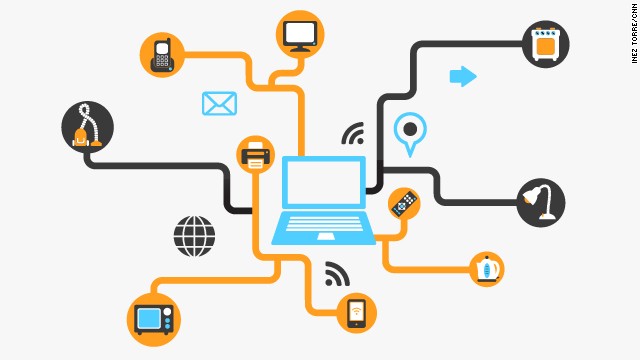Two years from now, it’s estimated the number of devices making up the Internet of Everything will surpass 23 billion. To put that into perspective, that means the number of interconnected gadgets will outnumber the world’s population 2.5 to 1.
The type of technologies that will make up this new sector will by and large already be well established, including things like smartphones, tablets, and computers, as well as wearables, TVs, and cars.

With such a wide range of technology types making up the expanding world of IoT, a number of companies are beginning to set in place processes and business models to support the customer’s needs and desires. A few have already done this, and to no one’s surprise, their names are a who’s who of industry leaders.
Texas Instruments
Upon analyzing the industry’s needs, TI went ahead and set up hardware / software support for companies looking to develop applications within one of what the company views as being the six key markets for IoT: building and home automation, smart cities, smart manufacturing, wearables, health care, and automotive. Among the products offered: analog signal chain, power management, sensing, wireless connectivity, processors, and MCU.
To learn more, visit the TI IoT support center.
Vishay
In recent years, Vishay has made a concerted effort to really expand its product line to better accommodate the engineers and designers working on IoT applications; specifically, the company has focused on developing more passive and active solutions.
Among the areas of IoT that Vishay provides solutions for are wearable devices for things like biometric monitoring, devices either clipped on or carried in one’s pocket, fitbands, patient monitoring, smart watches and smart glasses. Also, the company has expanded its product line to cover IoT technologies in the home; specifically, smart meters, lighting control, air conditioners, washing machines, induction cooking, refrigerators and freezers, and robotic vacuum cleaners.
To learn more, visit the Vishay IoT education center.
Digi-Key
Digi-Key, meanwhile, has really focused its efforts on wireless control; specifically, supporting the discrete controllers and transceivers that engineers can use to better create a low-cost, tightly-integrated design. The company believes that by pairing the right products with IoT designers, the amount of time spent designing these solutions can be reduced, and neither space nor performance is compromised.
To learn more about Digi-Key’s approach to supporting today’s IoT engineers and designers, head to the company’s site.
Mouser
The thought leaders at Mouser believe that the IoT comes down to one very simple viewpoint: it’s all about interconnecting wireless connectivity and sensors. A bit more specifically, the multiple connected embedded systems within an IoT network are really just independent microcontroller-based computers outfitted with sensors for the purpose of collecting and relaying data over a wireless protocol like WiFi, Bluetooth, or some other custom communication system.
It’s an interesting concept that is further expounded upon when considering how best to protect this information with data encryption. To learn more about the company’s view on this specific matter, visit Mouser.com
Advertisement
Learn more about Electronic Products Magazine





